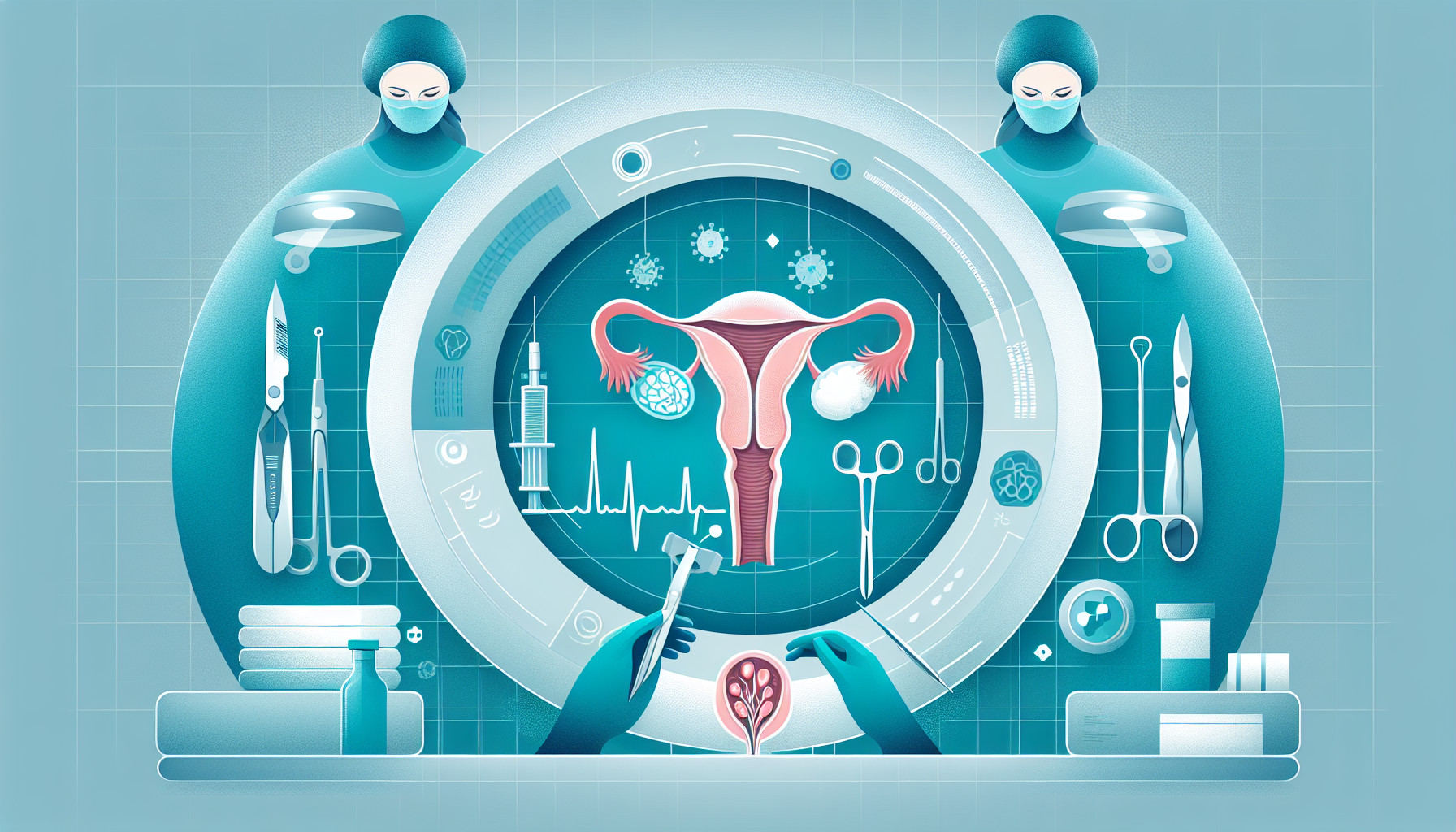Our Summary
This research paper is about a common women’s health issue called endometriotic ovarian cysts. These cysts are common among women who are of reproductive age and those who have trouble getting pregnant. The study looks at how surgery to treat these cysts can affect a woman’s ovarian reserve, or the number of eggs she has left.
The study found that women with these cysts have fewer eggs compared to healthy women of the same age. And, the surgeries used to treat the cysts can further reduce the number of eggs. Out of the different surgical techniques, the study found that laparoscopic ovarian cystectomy via stripping (a minimally invasive surgery that removes the cysts) is the best option for reducing pain, increasing chances of natural pregnancy, and reducing the chances of the cysts coming back.
However, other techniques like ablation (which destroys the tissue), combined techniques, and a three-step approach cause less decline in a hormone called anti-Müllerian hormone, which is a good indicator of a woman’s ovarian reserve.
The study concludes that a successful surgery should not only remove the cysts but also preserve the woman’s ovarian function and her ability to have children in the future. It also emphasizes that doctors should discuss the risks of surgery with their patients and make a treatment plan based on the patient’s symptoms and reproductive goals.
FAQs
- What is the effect of surgical treatment of endometrioma on ovarian reserve?
- What is the preferable surgical technique for the management of endometrioma?
- What should be the goals of a successful operation for the removal of ovarian cysts?
Doctor’s Tip
After ovarian cyst removal, it is important to follow your doctor’s post-operative care instructions closely. This may include taking pain medication as prescribed, avoiding heavy lifting or strenuous activity for a certain period of time, and scheduling a follow-up appointment to monitor your recovery. It is also important to discuss any concerns or questions you have with your doctor, as they can provide guidance on how to best support your healing process and maintain your ovarian function.
Suitable For
Patients who are typically recommended ovarian cyst removal are those with endometriotic ovarian cysts, also known as endometriomas. These cysts are more common in reproductive-aged and infertile women. Surgical treatment of endometrioma is recommended for patients who experience symptoms such as pelvic pain, infertility, or cyst enlargement. Additionally, patients who are seeking to preserve their ovarian function and future reproductive potential may also be recommended for ovarian cyst removal. It is important for patients to be counseled about the risks of surgery and for the management plan to be individualized based on the patient’s symptoms and reproductive goals.
Timeline
- Patient experiences symptoms such as pelvic pain, bloating, and changes in menstrual cycle, leading to a visit to their healthcare provider for evaluation.
- Imaging studies, such as ultrasound, may be performed to confirm the presence of an ovarian cyst.
- The healthcare provider may recommend removal of the ovarian cyst if it is causing symptoms, is large in size, or if there are concerns about the possibility of cancer.
- Prior to surgery, the patient may undergo preoperative evaluations and tests to assess their overall health and to plan for the surgical procedure.
- The patient undergoes laparoscopic ovarian cystectomy, where the cyst is removed through minimally invasive surgery.
- After the surgery, the patient may experience some pain and discomfort, which can be managed with pain medication.
- The patient is advised to rest and take it easy for a few days following the surgery.
- Follow-up appointments with the healthcare provider are scheduled to monitor the patient’s recovery and to discuss any concerns or complications.
- In the long term, the patient may experience improvement in their symptoms and overall quality of life after the removal of the ovarian cyst.
What to Ask Your Doctor
- What are the different surgical options for removing ovarian cysts, and which one is most suitable for my case?
- How will the surgery affect my ovarian reserve and future fertility?
- What are the potential risks and complications associated with ovarian cyst removal surgery?
- What is the recovery process like after the surgery, and how long will it take to fully recover?
- Will I need any follow-up appointments or additional treatments after the surgery?
- How soon after the surgery can I try to conceive if I want to become pregnant in the future?
- Are there any lifestyle changes or precautions I should take after the surgery to prevent future ovarian cysts?
- How often should I have follow-up examinations to monitor my ovarian health after the surgery?
- Are there any alternative treatments or therapies that could help manage ovarian cysts without surgery?
- Can you provide me with information or resources to learn more about ovarian cyst removal and its impact on ovarian health and fertility?
Reference
Authors: Samartzis K, Kathopoulis N, Loutradis D, Protopapas A. Journal: J Obstet Gynaecol. 2022 Jul;42(5):778-784. doi: 10.1080/01443615.2021.1962817. Epub 2021 Oct 25. PMID: 34693862
